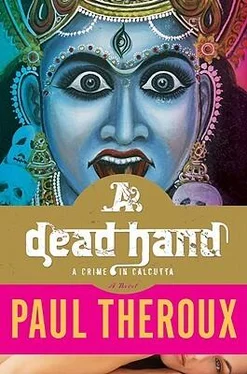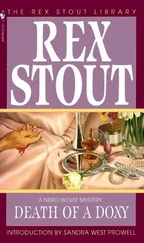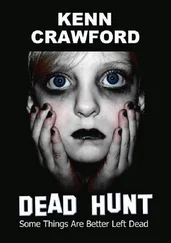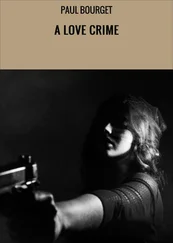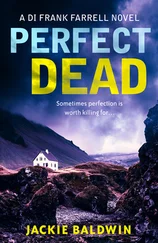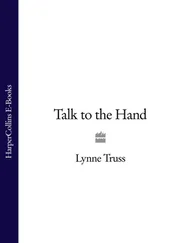
OVER BREAKFAST the next morning on the verandah of my hotel, the Hastings, conscious that I was eating what she'd instructed me to order — a little yogurt, green tea, a slice of mango, a handful of unsalted almonds — I mentally reviewed the meeting with Mrs. Unger — Ma, as I now thought of her. I was grateful to her for giving me something to do in Calcutta, to take my mind off my writing failure and my idleness. I had dreaded being stumped, having to sit in the heat over a blank page. I could not force out a story, and the few words I had written rang false.
Trivial as it was, the appointment she'd made for me had given me a purpose, a destination for the day. I could have called Howard at the consulate, but he had a real job and obligations. I could have met Parvati for tea, providing she was in the company of some of her friends; it was considered indecent for a man like me to meet a virginal Hindu like her alone. She was gifted, with her whole life ahead of her as a dancer, a poet, a practitioner of Indian martial arts. I wished her well, but I knew that not much would change in my life. Old age was not an accumulation of thought and experience but rather the reverse: by writing of my most vivid experiences I had disposed of them. Old age for me was an emptying of the mind.
Old age for me was also a narrowing of possibilities and maybe (as I was beginning to think) a slow dying, parts of the body becoming useless — my empty head, my dead hand. What body part next?
Calcutta was the perfect place to feel like a physical wreck or a failure. Virtually everyone else was much worse off than I was. Maybe that was why I had lingered after my work was done, though I hadn't made anything of my experience in the city. Had I not met Ma the day before, I would have spent the day walking as though in a hot-weather stupor, window-shopping, museum-going, or heading to Howrah station and considering the outbound trains. I had thought of leaving, but having met Ma I was curious and sentimental and dog-like, sniffing at the memory of meeting her and hoping to see her again.
And sitting on the Hastings verandah, the sun dazzling in the slats of the shutters, I remembered more of what she had said at the Oberoi — more than what I have already written. The talk of the British Empire and her Anglophile late husband had led her to talk about the English in general and the royal family in particular.
"They love royalty here too. The British spend half their time lying to themselves about their dysfunctional country. The Indians do the same. I'm not surprised they find common ground. 'We love pageantry,' the British say as they hide behind the flags and the funny-looking hats. And Queenie's the head of the church, the Defender of the Faith — it says so on the money. But look at her. Have you ever heard anything so ridiculous? She's a gilded crock, a posturing old dear who regards Britain as her personal property. Imagine finding spirituality in this little old lady. It's like finding spirituality in a skinny cow, which Indians do."
"If you want to be worshiped, go to India and moo. Isn't that what they say?"
But she wasn't listening. She was saying, "I think the Indians easily came to admire Queen Victoria, because she was the superqueen, the Rajmata. Indians believe in hierarchies and the British model came ready-made, as a big unifying social contraption."
She was speaking slowly but intensely, with the kind of fluency that made me think she'd recited this denunciation many times before, because it was a speech rather than a conversation, and whatever I said was an interruption.
"India's dirty little secret is that they dislike each other and are untrusting. The British are the same — English especially. Can't bear each other. Never talk. Don't even say hello. That's why they're so happy in America, because we believe this fictional version of themselves. They hate their lives. They can only be happy by promoting the myth of the terribly British, and that's only possible overseas, in faraway places like India. Indians have bamboozled Americans too. 'We don't eat animals.' Most of them do! 'We are spiritual, madam.' They worship money!"
"It's true," Rajat had said. "We are so materialistical."
"I suppose it's a commonplace to regard the British royal family as social upstarts."
"I never heard that before," Rajat had said.
"The royal family is bourgeois — if anything, they're lower middle class but with insane pretensions. Prince Philip used to complain to newspaper reporters that he had no money, that he couldn't afford to keep polo ponies, that Buckingham Palace got horrible aircraft noise. That's typical shabby. 'We just don't have the money!' 'We're stuck here in this rackety house!'"
And then: "They get all sorts of freebies, you know. They ask for them. The Duchess of Whimsy goes to New York and stays free at a hotel with her whole parasitical entourage. She does the same in India, and it's even worse because the Raj still exists in the mind of the British royal family. Before any of these royals leaves London, she has her lady in waiting send a memo detailing how many rooms she'll need, usually four or five suites, how many other people have to be accommodated, all the meals she'll want, and the pickup times at the airport for the hotel limos. A list of demands, you see. At the end of her freebie she agrees to appear at a cocktail party and have her picture taken. No money changes hands. It's all grace and favor."
I had not known this. I was impressed and slightly shocked by her version of a royal visit. I took out my almost blank notebook and wrote down what Ma had said.
"Hotels in New York compete to host the British royals and take tea with them. It makes me ashamed to be an American. My late mother-in-law was English. She adored the royals, the Queen especially, that perfectly hideous woman. Isn't it ghastly?"
The "Isn't it ghastly?" I found especially interesting. Whenever Americans denounced the British they always did it with a mimicky British turn of phrase: "take tea with them," "perfectly hideous," "quite disgusting," or the one word "ghastly."
"It's even worse in India. Faded maharajahs and scruffy English aristocrats slobbering over each other and lamenting the loss of the Raj. It's absolutely frightful."
Charlie had said to me, "You shouldn't have gotten Ma on this subject."
But I hadn't. I had only listened and nodded, and she still went on snapping at the subject.
"What a pathetic family, and it's all there in full view, the whole sorry lot of them. You think less of the British just looking at them."
"But they are beneficial for tourism," Rajat said. "Like our maharajahs, faded though they may be."
"Have you ever seen anything that was good for tourism that wasn't a complete blight for everyone else? Here, I think of those superfluous maharajahs chain-smoking and drinking whiskey," Ma said. "In America it's Disneyland. Golf courses. Gambling casinos. Strip clubs. Nothing artistic. The monarchy — all monarchies — are a confidence trick. All they do is diminish people. Yes, I agree, probably good for tourism, like a freak show. But if Queenie was really a freak I'd probably like her a little. She's not. People make excuses for her. 'She works jolly hard.' You know who works jolly hard? Not the greedy Queen, not you or me, but those sweepers out there in Chowringhee. The real aristocrats of the world are the native peoples, the so-called tribals in India, the Mizos, the Nagas in Assam."
"Tell him your vow, Ma," Charlie said.
Ma straightened and said, "I refuse to read about the royals. If there's a story about Queenie's dogs or her children's foolish marriages — have you ever seen so many divorces in a holy family? — anything related to the royals, I turn the page. The headline 'Prince Charles in Skiing Accident' has me thrusting the paper aside. I change channels when they're on the telly."
Читать дальше
